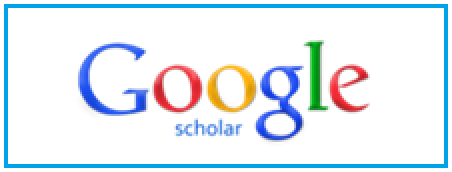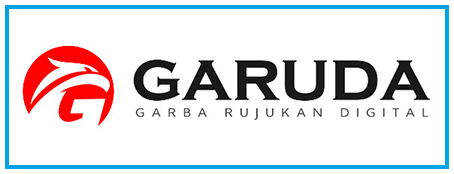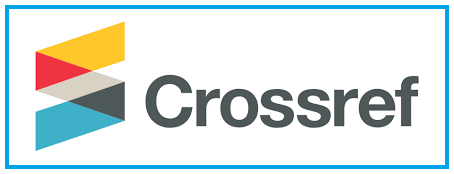CREATIVE, VISIONARY, THE POWER OF LOVE BUSINESS NABI MUHAMMAD, SAW
Keywords:
Creative, Visionary, The Power of the Prophet's Love in BusinessAbstract
The efforts made by the Prophet Muhammad, became interesting to review, because he lived in an Arab society with a jahiliyyah pattern that had no norms/ethics or morals in the business world. Prophet Muhammad SAW grew up and grew up in a respected and wealthy family, but did not make him sit idly by to get sustenance, but he went on a business trip that prioritized politeness, honesty and sincerity, thus making all groups amazed at his personality, from here we look first at the business run by the Prophet Muhammad SAW. The researcher uses a qualitative methodology with a historical approach. Researchers try to uncover the historical facts behind the success of the Prophet Muhammad SAW in business. Through a historical approach, it is hoped that it can provide an overview of business and marketing today, and in the future that we must emulate and practice by all human beings who make Prophet Muhammad SAW the Prophet of Allah's messenger. The principles of efficiency and effectiveness are used to measure the level of success of a business. This principle encourages academics and practitioners to look for various ways, techniques and methods that can achieve the highest level of efficiency and effectiveness. The more efficient and effective a company is, the more competitive the company is. In other words, in order to be successful in running a business, by having the characteristics of Siddiq, Amanah, Tablik and Fathonah which can be used as the basic capital to apply the principles of efficiency and effectiveness. His experience as a trader of the Prophet Muhammad long before he was sent by Allah SWT to be a prophet and apostle. And from several experiences the Prophet Muhammad was revealed in the form of a word after he was sent. In practice he always upholds humanity and is not only worldly oriented. He always maintains honesty, trust, professional, friendly and generous in all his activities, especially in his business.
Downloads
References
An-Nabhani, Taqiyuddin, 1996, Building an Alternative Economic System, Islamic Perspective, Minutes of Gusti, Surabaya.
Antonio, Shafi'i. 2008.” Islamic Bank from Theory to Practice”. Jakarta: Gema Insani Press. Bertens, 2000. Ethics. Jakarta: Gramedia Pustaka Utama. p.17, 1997. Islamic Business Ethics, Virginia: International Institute of Islamic. thoughts. Thing.
20-23
Chalil, Moenawar, 1994. Complete Date of Prophet Muhammad SAW, Eighth Book, PT Bulan Bintang, Jakarta.
Chapra, M Umer, 1992. Islam and Economic Challenge, The Islamic Foundation and IIIT., Verndon, USA., 2000. Islam and the challenges of Islamic Economics. (Jakarta: Gema Insani Press,) p.10 CNBC Indonesia, 2021. Indonesia's Foreign Debt has fallen, but is still above 6,000 trillion. Uplod on 22/01/2022.
Ministry of Religion of the Republic of Indonesia, Al-Qur'an and Translation,
Idri, 2015. Economic Hadith in the Perspective of the Prophet's Hadith. (Jakarta: Kencana,) p.02 Islahi, Abdul Azim, 1988. Economic concepts of Ibn Taimiyah, The Islamic Foundation, Leicester, UK.
Ketut Rindjin, 2004, Business Ethics and Its Implementation, Gramedia Public Library, Jakarta. p. 76- 77
Khan, M. Akram, 1989. Economic Teaching of Prophet Muhammad Pbuh, International Institute of Islamic Economics and Institute Policy Studies, Islamabad.
Khalil, Manawar,. 1994' Complete Date of the Prophet Muhammad SAW. Jakarta; Echo Insani Press. Mannan, M.A. 1986. Islamic Economics, Theory and Practice, The Islamic Academy, Cambridge., 2016. Sharia Economic Law in the Perspective of the Authority of the Religious Courts. (Jakarta: Kencana) pp.26-29
Muhammad and Lukman Fauroni. 2002. Vision of the Qur'an About Ethics and Business, Jakarta: Salemba Diniyah
Muslim. 2010. Islamic Business Ethics; Yogyakarta: Economia, Faculty of Economics. UII
Mustafa". 2021.” Imam Al-Mawardi's Thoughts on the Welfare State in the Reformation Era in Indonesia in 1998-2018. Thing. 5-15
Naqvi, Syed Nawab, 1993, Ethic and Economic: An-Islamic Synthesis. Translated by Husen Anis.
Ethics and Economics An Islamic Synthesis. Bandung; Miza.
Qarhawi, Muhammad Yusuf, 1995. Roles and Moral Values in the Islamic Economy, Robbani Press, Jakarta.
, 1997. "Islamic Economic Norms and Ethics". Jakarta: Gema Insani Press.
Saifullah, Muhammad, 2010. .Business Ethics in Business Mall Practice Muhammad, .Jurnal Economica, vol.1/edition I/November
Sony Keraf, Yogyakarta Business Ethics, Kanisisus, 1998, p.32
Yusanto, Muhammad Ismail and Muhammad Karebet Widjajakusuma. 2002. Initiating Islamic Business, Jakarta: Gema Insani Press.p.18
http://cintaumiku.blogspot.com/2010/02/value-value-perlaku-bisnis-rasulullah. accessed on 29 November 2010 . equal to 20)
Downloads
Published
How to Cite
Issue
Section
License
Copyright (c) 2022 SENTRI: Jurnal Riset Ilmiah

This work is licensed under a Creative Commons Attribution-NonCommercial-ShareAlike 4.0 International License.









